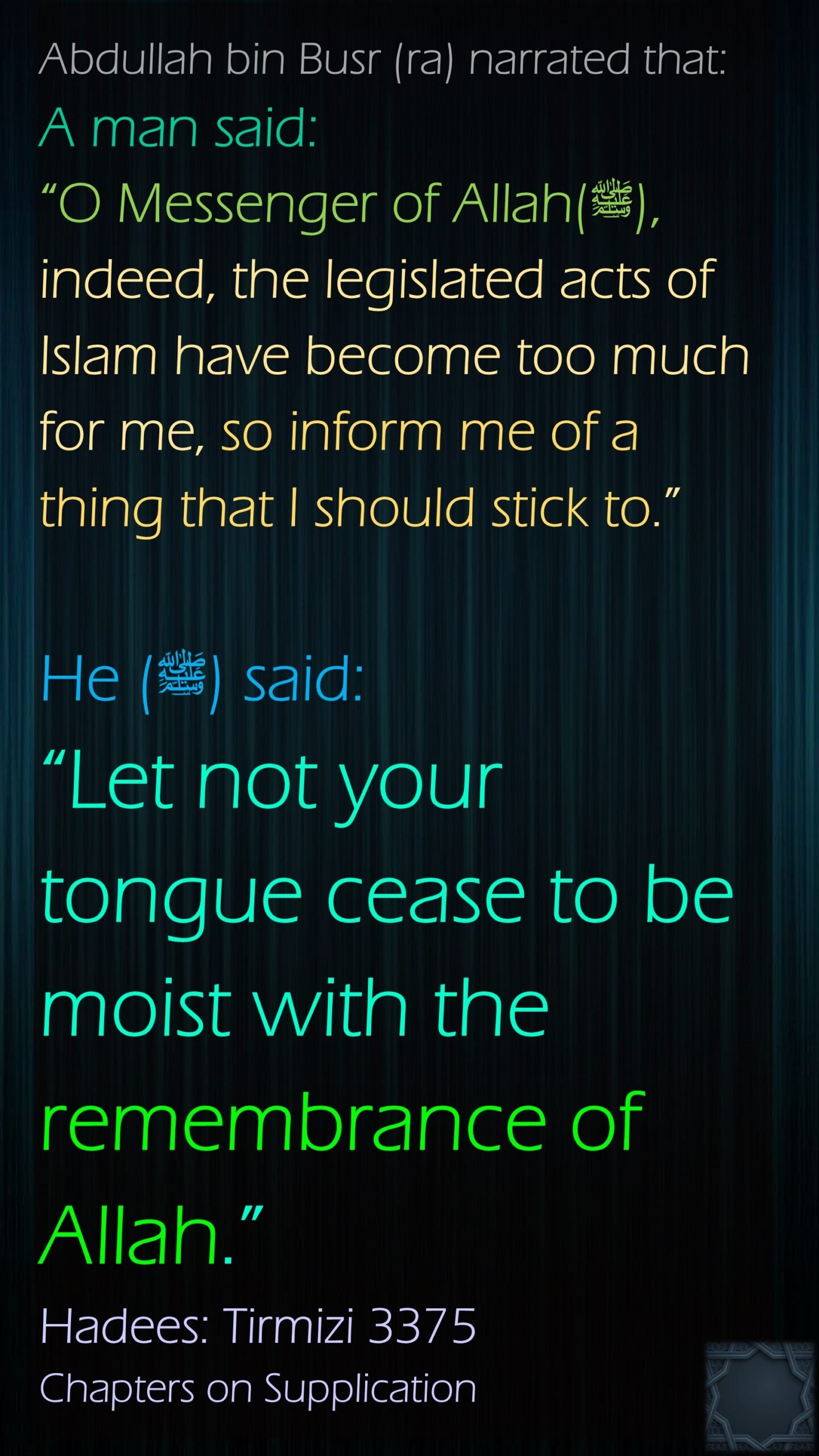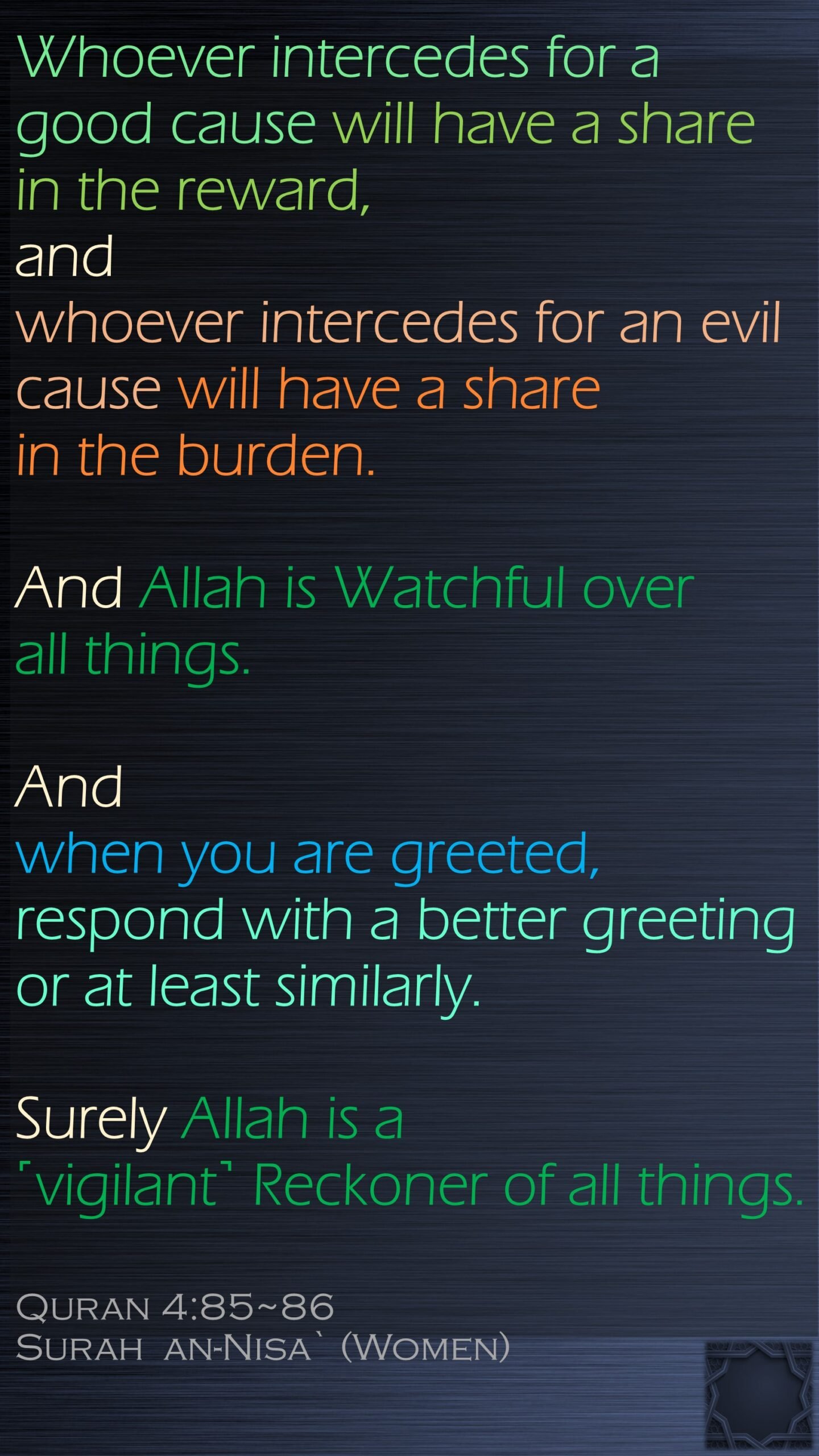Skip to Content
Tag Archives: burden
- Home -
- Posts tagged "burden"
6
Feb, 2026
Islam, Quran
033, 073, 33-072, 72, 73, al-Ahzab, All-Forgiving, Allah, allies, assume, believe, believing, burden, combined forces, consequence, daily, earth, fear, fearful, heavens, human, humanity, ignorant, inspirations, islam, islamic, Men, Mercy, Most Merciful, mountains, Muhammad, punish, quran, Surah, themselves, women, wrongful
1
Jan, 2026
Hadees, Islam
2713, 6551, aakhir, Allah, awal, baatin, Bible, burden, control, Criterion, daily, datestone, debt, earth, everything, evident, evil, First, forlock, fruit krenal, Glorious Quran, grain, grow, heavens, Holy Quran, Injil, Innermost, inspirations, islam, islamic, last, Lord, Magnificent Throne, Muhammad, Muslim, Our, perfect, refuge, relieve, reveal, Sahih, seed, sleep, splitter, Torah, want, zahir
20
Jul, 2025
Islam, Quran
033, 035, 036, 038, 040, 042, 053, Abraham, Allah, an-Najm, ayat, burden, covenant, daily, effort, endevour, inspirations, islam, islamic, knowledge, Moses, Muhammad, nil, no, outcome, quran, seen, share, sin, Soul, strive, Surah, the Star, unsee
17
May, 2025
Hadees, Islam
1121, Aisha, Allah, awake, bukhari, burden, capacity, daily, deed, engage, good, house, inspirations, islam, islamic, Mercy, Muhammad, not, overburden, prayer, reward, sleep, tire
11
Dec, 2024
Hadees, Islam
3596, Allah, burden, daily, day of judgement, inspirations, islam, islamic, light, Mufarridun, Muhammad, preceded, remember, rememberance of Allah, remove, tirmidhi, Tirmizi
27
Nov, 2024
Hadees, Islam
3375, Allah, burden, cease, daily, easy, inspirations, islam, islamic, legislate, moist, Muhammad, not, remember, rememberance of Allah, solution, tirmidhi, Tirmizi, tongue, too much, zikr, zikr Allah, ذِكْرِ اللَّهِ
20
Oct, 2024
Islam, Quran
007, 157, Al-Araf, Allah, ayat, believe, bound, burden, commands, daily, day, elevated, elevated place, evil, forbid, good, Gospel, impure, inspirations, islam, islamic, lawful, light, Muhammad, places, quran, relieve, successful, support, Surah, Torah
17
Aug, 2024
Islam, Quran
004, 85, 86, all, Allah, an_Nisa, ayat, burden, cause, daily, equal, evil, evil cause, good, good cause, greet, greeted, greeting, inspirations, intercede, islam, islamic, Muhammad, quran, reckoner, reward, share, similar, Surah, tings, vigilance, vigilant, watchful, women
14
Jul, 2024
Islam, Quran
035, 18, Allah, awe, ayat, bad, burden, carry, close relative, creator, daily, deed, establish, Fatir, good, inspirations, islam, islamic, Lord, Muhammad, prayer, quran, relative, sin, sin-burden, Soul, Surah, unseen, warn, وَأَقِيمُواْ الصَّلاَةَ
14
Apr, 2024
Islam, Quran
Allah, An-Nisa, ayat, burden, clear, daily, deviate, Grace, human, humandkind, inspirations, islam, islamic, lighten, Mercy, Muhammad, noble, quran, Surah, way, weak, women










